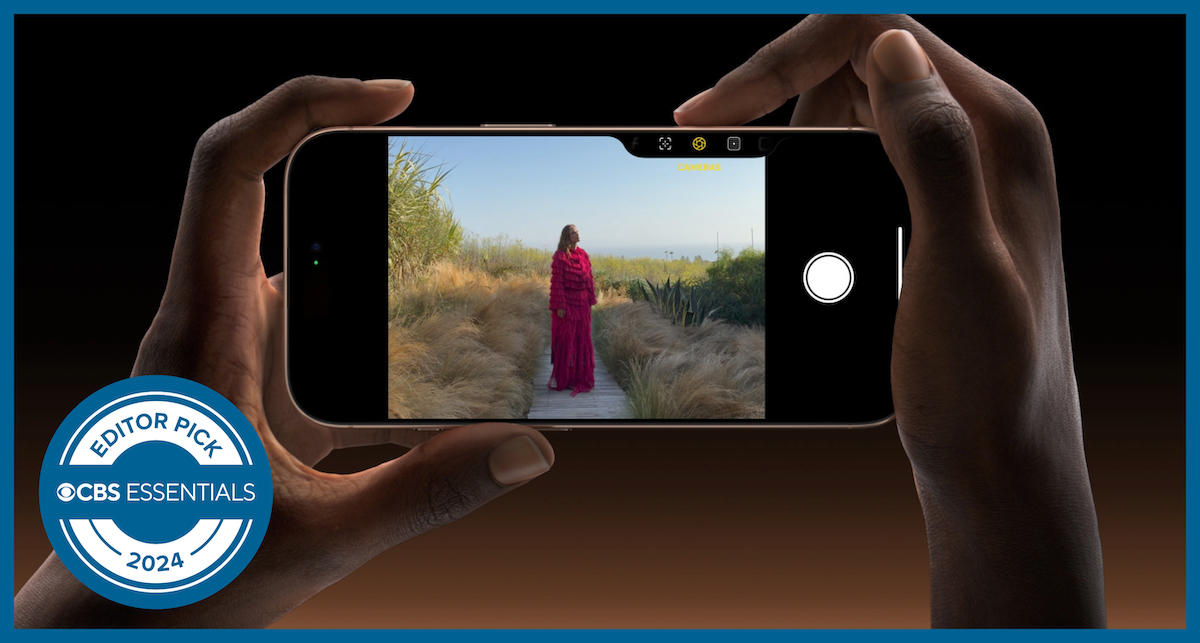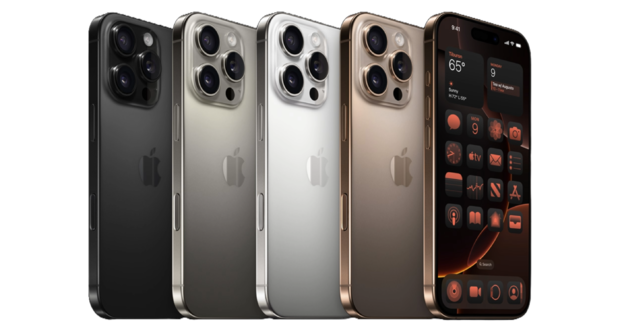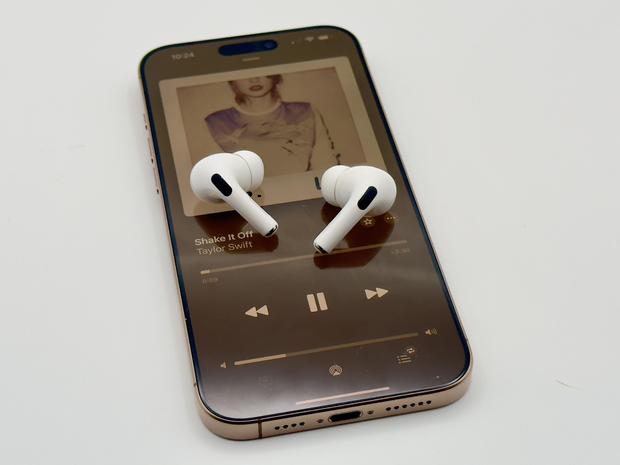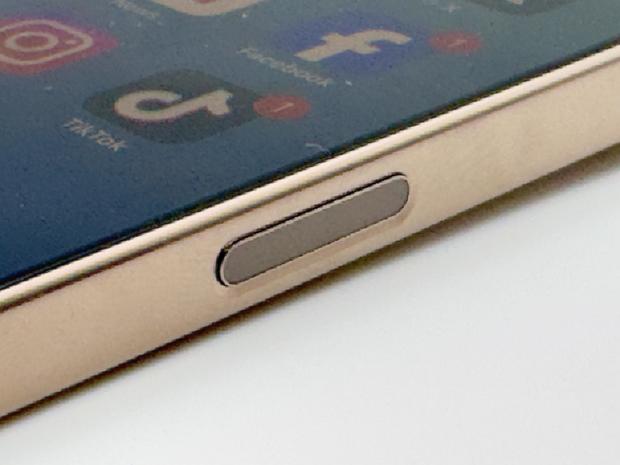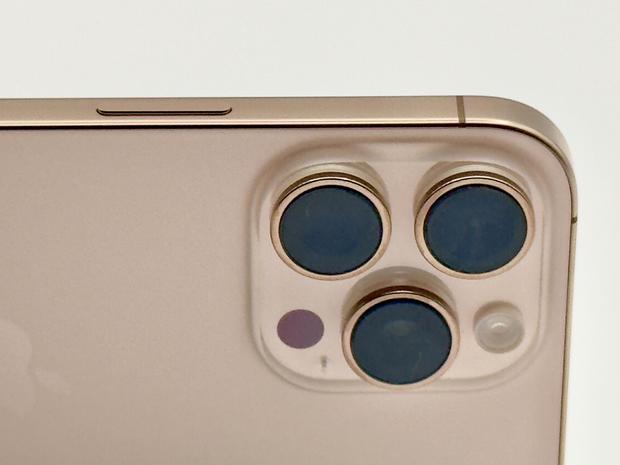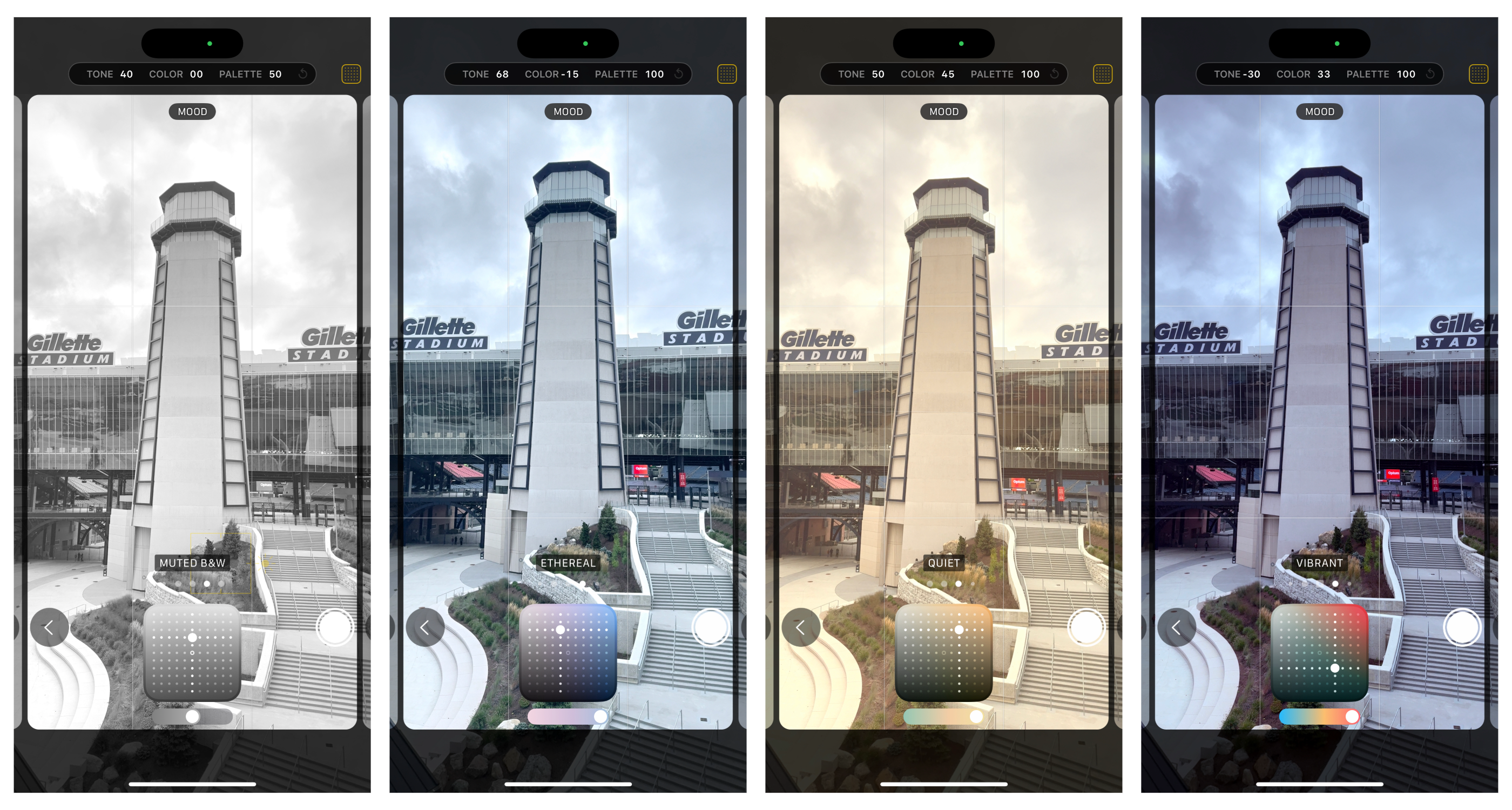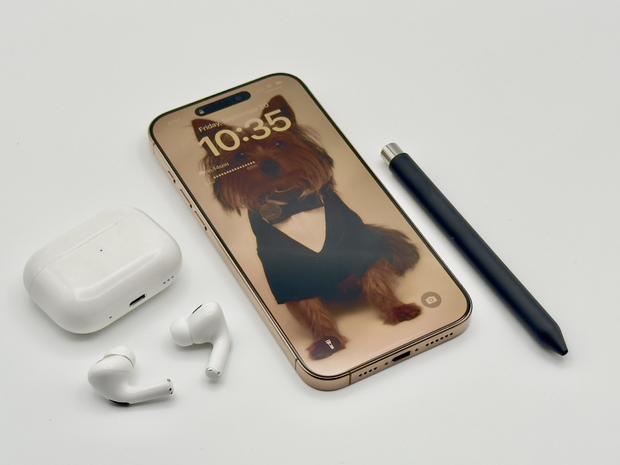Apple iPhone 16 Pro Max: Great for photos, but is it worth it? Hands-on review
Apple just released its latest lineup of iPhones, which include the iPhone 16, iPhone 16 Plus, iPhone 16 Pro and iPhone 16 Pro Max, but when comparing these new phones to last year's models, the updates seem a bit lackluster -- offering just small improvements and a handful of promises.
Having owned every iPhone model since the original was released in 2007, I've always been one of the early-adopters and have purchased the latest model as soon as Apple begins accepting preorders. This year was no different. I preordered the iPhone 16 Pro Max with 512GB of internal storage in the new desert titanium color. It replaced my iPhone 15 Pro Max, also with 512GB of storage.
Keep reading to learn more about this phone and whether it's worth upgrading, or if you should stick with the iPhone model you're currently using.
Pro Tip: If you're thinking about making the switch from an Android phone to an iPhone 16, we've got you covered with our coverage of five reasons to make the transition.
Who should buy the Apple iPhone 16 Pro Max?
The iPhone 16 Pro Max is Apple's top-of-the-line smartphone and the model with the largest display. It's designed for those who need the fastest performance possible, and who can benefit from having the largest smartphone display that Apple has to offer. This smartphone is designed to be a high-performance communications device that can also serve as a productivity, entertainment, health/fitness and safety tool, as well as a powerful still image and video camera.
This is the iPhone you want if you're interested in taking pro-quality photos or shooting video at up to 4K (120fps) resolution. Thanks to its Apple A18 Pro processor, it's also the model that can handle high-end gaming or tasks that require a tremendous amount of processing power.
Unless you need both the added processing power of the A18 Pro chip (that's available in the iPhone 16 Pro and iPhone 16 Pro Max) and want the additional on-screen real estate offered by the iPhone 16 Pro Max, one of Apple's less expensive iPhones may be more suitable for you.
iPhone 16 Pro Max: At a glance
Display size: 6.9 inches | Display type: Super Retina XDR touchscreen | Display resolution: 2,868 x 1,320 pixels (460 pixels-per-inch) | Refresh rate: Up to 120Hz | Max. display brightness: 2,000 nits | Processor: Apple A18 Pro | Available colors: Black titanium, white titanium, natural titanium, desert titanium | Dimensions: 6.42 x 3.06 x 0.32 inches | Weight: 7.99 ounces | Storage options: 256GB, 512GB or 1TB | Port: USB Type-C 3.2 | Wireless connectivity: 5G, Wi-Fi 7, Bluetooth 5.3 | Battery life: Up to 33 hours (video playback) | Operating system: iOS 18 | SIMs: Dual eSIM | Waterproof rating: IP68 | Front camera: 12MP TrueDepth | Rear cameras: 48MP Fusion (main), 48MP (ultra-wide), 12MP (telephoto) | MagSafe compatible: Yes
Pricing: $1,199 (256GB), $1,399 (512GB), $1,599 (1TB) - Before trade-in, promotions or financing offers.
Compared to the iPhone 15 Pro Max, the iPhone 16 Pro Max offers a faster and more powerful processor and a slightly larger display. The CPU is up to 15% faster, while the GPU runs up to 20% faster. That said, being a "power user," when working with the iPhone 15 Pro Max, I never once thought to myself, "Gee, this smartphone is too slow," nor did I ever become frustrated by any unwanted lagging -- even when playing high-end, graphic-intensive games. This makes me wonder if even more processing power is worth the investment.
The phone also now supports Wi-Fi 7, as opposed to Wi-Fi 6E. And battery life is more efficient, compared to last year's model. You can expect up to four additional hours of runtime per charge.
The two significant new features are the Camera Control button that's located on the side of the smartphone, as well as the Apple Intelligence (AI) integration that will soon be part of a yet-to-be-released version of iOS 18. This AI functionality is expected to be released later this fall. The only users who will benefit from the Camera Control button are those who heavily use their iPhone to take photos or shoot video -- and even then, using the Camera Control button is optional.
The iPhone 16 Pro Max's housing is now made using Grade 5 titanium, which is lightweight and incredibly durable. Plus, to make the display slightly larger than last year's model, Apple has decreased the size of the bezel around the screen. This allows for a 6.9-inch display, compared to the iPhone 15 Pro Max's 6.6-inch display. This display size difference is inconsequential.
Will Apple Intelligence make the iPhone smarter?
At the moment, that's a difficult question to answer, since Apple Intelligence will not be introduced into any iPhones until later this fall. However, what we expect is a more personalized Siri digital assistant that not only understands what's being said, but also the context that's used when making requests or asking questions.
Apple Intelligence will allow apps to more seamlessly work together and exchange relevant information in a way that can streamline common tasks, while helping users maintain their privacy and security. Apple Intelligence will also help with composing text. When used as an audio recording device, it will be able to transcribe and then summarize recordings. AI-assisted language translations and more seamless scheduling and to-do list management have also been promised.
For someone who takes a lot of pictures or shoots video, Apple Intelligence introduces easier to use and more powerful image enhancement and editing tools, such as the Clean Up feature offered by the Photos app that can be used to remove unwanted objects from photos. This feature works decently, but only in certain situations. AI can also assist in the actual picture taking or video shooting process to ensure the best possible results. However, until Apple actually unlocks all of the Apple Intelligence features, it's difficult to predict how useful the AI-driven functionality will actually be.
Apple iPhone 16 Pro Max: Photography and videography
From a hardware standpoint, the improvements made to the iPhone 16 Pro Max's camera system aren't dramatic. However, Apple has made major enhancements to both the Camera and Photos apps that come preinstalled with iOS 18. This gives the camera system new capabilities. Combined with the faster processor, overall camera performance is noticeably better. There are also more tools for taking, editing, enhancing, organizing and sharing photos and video content.
Most noticeable is the addition of the Camera Control button. This physical button on the side of the phone can be used to quickly launch the Camera app, adjust the app's settings, and then work as a shutter button. The result is an experience that's closer to using a traditional point-and-shoot camera than ever before. Of course, all of the camera controls and options previously available via the touchscreen continue to be offered. Thus, the Camera Control button provides an alternative and optional way to work with the Camera app.
The iPhone 16 Pro Max is now able to shoot video at 4K (120fps) resolution with support for Dolby Vision. This is the highest resolution and frame rate an iPhone has ever offered. This is combined with enhanced spatial audio recording capabilities when shooting video, so it's easier to capture and create more immersive and visually compelling content.
The still photography options are also enhanced. There are two upgraded 48MP cameras and one 12MP camera on the back of the phone, which support both the ProRAW and HEIF photo file formats. This allows users to capture a higher level of detail, even in low light situations. Using digital zoom capabilities, you now get up to 25x zoom. The phone's macro (extreme close-up) capabilities have been enhanced, too.
The behind-the-scenes processing that happens when shooting photos or video allows the phone to capture more accurate colors, including more life-like skin tones. And with the help of Photographic Styles, it's easier to infuse your own creativity when creating content.
The redesign of the Photos app offers more features and control over the stored images. However, the redesigned interface is not as intuitive as it once was. It's different enough that it's been taking me time to acclimate to the new design (and I have been using the beta version of iOS 18 on the iPhone 15 Pro Max for over a month already). I fear some users will find the new interface downright confusing.
Sample images taken using the iPhone 16 Pro Max
5 differences between the iPhone 16 and iPhone 16 Pro Max
- The iPhone 16 offers a 6.1-inch display, while the iPhone 16 Pro Max features a 6.9-inch display.
- The iPhone 16 and iPhone 16 Plus run using the Apple 18 chip, while the iPhone 16 Pro and iPhone 16 Pro Max are equipped with the faster and more powerful A18 Pro chip.
- The iPhone 16 Pro Max offers 256GB, 512GB or 1TB of internal storage, while the iPhone 16 offers 128GB, 256GB or 512GB of internal storage (with no 1TB option).
- The resolution of the iPhone 16 is lower than what's offered by the iPhone 16 Pro Max -- 2,556 x 1,179 pixels versus 2,868 x 1,320 pixels.
- The iPhone 16 offers two rear-facing cameras, while the iPhone 16 Pro Max has three rear-facing cameras, so users get more creative control and option when taking pictures or filming video.
Is the iPhone 16 Pro Max worth it?
The best way to see how well the iPhone 16 Pro Max performs, outside of photography or videography, is to push its processing power by playing graphic-intensive games. I installed and played "Diabolo Immortal." Visually, this is one of the more advanced iPhone games available from the App Store, and it looks and sounds fantastic on this phone.
Another new thing is the ability to further customize the appearance of what appears on the iPhone's screen. For savvy users, these added features are fun to work with. However, for someone who's already overwhelmed by all of the iPhone's customizable options, navigating through the Settings app and personalizing the phone is now a more convoluted process.
I'd love to say that anyone who is using an older iPhone or Android phone should switch to the iPhone 16 Pro Max, but I am not comfortable making this claim. Instead, I'd certainly recommend the iPhone 16 Pro Max to anyone who is using an iPhone that's three or more years old. These people who will see the greatest improvement in overall performance, especially if they want a larger screen, too.
However, if you're an iPhone 15 Pro Max user thinking about upgrading to the iPhone 16 Pro Max, the only significant enhancement is the addition of the Camera Control button, since both phones can run the latest version of iOS 18 and will take advantage of Apple Intelligence once it's released.
- Design: With the exception of the additional Camera Control button and slightly larger display, the design of the iPhone 16 Pro Max is very similar to last year's model. I do really like the new and more sophisticated looking casing color options, however.
- Performance: Yes, the iPhone 16 Pro Max can perform faster. This will potentially be beneficial when using Apple Intelligence functionality, but for everyday tasks, it makes little difference.
- Value: The iPhone 16 Pro Max is expensive. Unless you need the extra processing power and larger display, you can save money upgrading to the iPhone 16 or iPhone 16 Pro. The iPhone 16 Plus is a middle option, but for slightly more money, most users will appreciate the enhanced performance of the iPhone 16 Pro or iPhone 16 Pro Max.
- AI integration: The NPU is certainly powerful, but how well Apple integrates Apple Intelligence into iOS 18 and core apps is yet to be seen.
For in-depth reviews of the Apple iPhone 16 Pro, Google Pixel 9, Google Pixel 9 Pro, Google Pixel 9 Pro XL, Samsung Galaxy Z Flip 6, Samsung Galaxy Z Fold 6, Apple iPhone 15 Pro Max, OnePlus 12 and other popular phones, check out our ever-expanding tech coverage.

